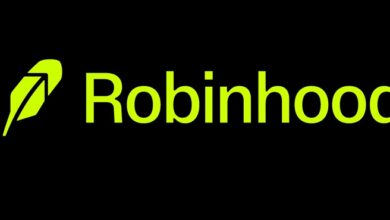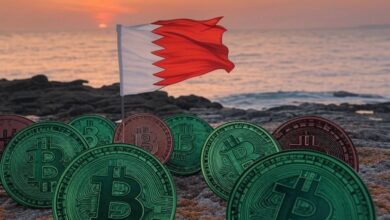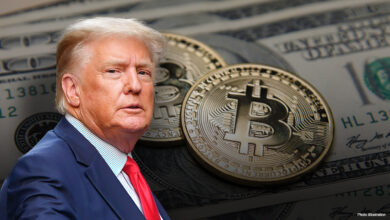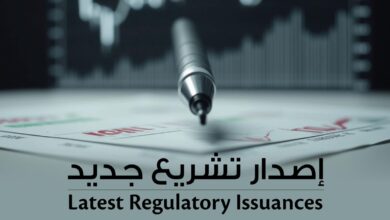Using Blockchain to replace the lost trust of Lebanese in their government

For the past week, as a Lebanese, we have been glued to the rightful uprising happening in the country. The millions of Lebanese on the streets have one thing in common; they have lost trust in the Lebanese government, its politicians and to a large extent in its sectarian confessional democracy.
The cause is not centered only on the huge economic recession the country faces, or the fact that the Lebanese currency is losing its value, or even the fact that the Lebanese government were in the midst of taxing the already over-burdened Lebanese citizen. The issue is deeper and far more serious. The Lebanese, the 2 million in Lebanon on the streets today and on social media and the thousands of Lebanese who protested across the globe are weary, tired, and fed up with a government, a ruling group, long standing political parties that they cannot trust. A government where they believe the majority of which has stolen public funds for their own personal interests. A government which they believe has used its power and position to rip the Lebanese people of their basic rights.
While I may not be a politician, I am a journalist, a journalist who for the past three years has been writing about how new technologies such as the blockchain can make a radical and deep change not only in how governments relate and service their citizens but also in how economies, and business sectors can transform and create a trusted system when no trust exists between them.
This in itself is revolutionary, as we utilize technology in the 21st century as a tool for government oversight, checks and balances. It makes me think that if a blockchain platform were in place within Lebanon, then the Lebanese could rest assure and not need to trust the government in as much as they trust the technological platform that is in place to make sure that the government is working well within its boundaries and as agreed upon with the Lebanese public.
The Lebanese Government
What if there was a blockchain platform, a trusted, secure, transparent, time stamped, non-refutable transaction, and information network, in place in Lebanon that ensured budgets allocated to different sectors actually were spent in these sectors in the right way as agreed upon by the Lebanese people represented by Parliament. An example that comes to mind is what if all these governmental entities and its officials were on a blockchain, and budgets were allocated based on smart contracts, and only executed to the parties privy to these contracts, then no corruption would happen and no embezzlement of funds to the wrong hands would occur. It would be impossible to release those funds to anything or anyone but the intended party, the amount of these funds as well could not be manipulated because the smart contract was in place.
Even more than that, today Lebanon is embarking on a wide spread privatization strategy, this means there will be preparations pertaining to bids, offers, RFPs ( request for Proposals) as well as regulatory and legislative documents. If the RFPs were written in stone on a blockchain platform, and if all bids came in transparently through the blockchain, this would ensure once again trust in these activities not only by the Lebanese people, but also investors and conglomerates that were willing to be part of this. It would ensure that there would be no influence from political or governmental entities on the process because once something is on the blockchain you cannot change or remove it. Most importantly International governmental agencies that are ready to loan money to Lebanon could clearly trace the funds and ensure they were being spent in accordance with the requirements set by these international bodies.
This implementation could extend onto most everything else in the government whether tendering process for projects, procurement, spending, etc.. The development of the oil sector in Lebanon is one of the most controversial projects in process and the need for transparency is paramount. The Blockchain would be the most suitable tool to ensure transparency/
But that is not the only way that Blockchain can help bring back trust. The Lebanese are calling for early parliamentary elections. Imagine if these elections could be carried out on the blockchain. It is not hard to provide a digital identity to every single Lebanese, whether in Lebanon or across the world. It is not difficult to map out the electoral law on the blockchain. Imagine if every vote on the blockchain could never be manipulated, if every vote was counted by the Blockchain platform, if every vote went to the right faction or person intended.. This would be the epitome of trust being put back into the democratic life of Lebanon.
Even more so, the Blockchain platform in itself could be used to cut costs within government by reducing the need for paper transaction across its departments, by ensuring that its citizens could carry out all their governmental transactions on the blockchain through a simple mobile application. Even more so all payments owed to the government by citizens, whether municipality, taxes, water, electricity and others could be carried out seamlessly utilizing a mobile application, with a digital wallet, and a digital Lebanese currency in the wallet.
And yet while governments across the world and even in the GCC and MENA region are utilizing blockchain to improve their services, to create more transparent governments and to cut costs, Lebanon has not even started. The UAE government has embarked on a blockchain strategy going back since 2017. Research and papers have spoken about how blockchain can transform the role of governments. Countries in Europe such as Estonia and even the Netherlands are using Blockchain for border control which is one of the biggest issues facing the Lebanese government today. Even the USA is looking into blockchain for governmental services and even Iran is serious about creating a crypto digital backed currency. A recent report published on October 21st of this year talks about the leading countries and governments around the world who are utilizing blockchain.
The Cost of Trust for Lebanese Government
Today the non-existence of trust in the Lebanese government by the Lebanese citizens on the streets, and the protests that include the closing of roads across the country is costing the country, the government, and the Lebanese economy millions of dollars. The cost of this lack of trust goes even deeper as the country’s democracy deteriorates and investors sway away from the country. If Lebanon were to implement blockchain it wouldn’t cost them a cent. Why,? Because most blockchain technology providers and today most tech companies across the world are no longer charging for the systems, solutions and products.. Today companies charge per usage. What does that mean for a country like Lebanon? It means that the Lebanese could implement a public Blockchain platform like Ethereum or NEM or Hyperledger, or any other at little to no cost. The companies would get paid a percentage of every transaction made on the blockchain or anytime the Blockchain platform was used to retrieve documents or verified information. With the advent of Blockchain as a service, entities could hook up to the governmental blockchain platform through what are called nodes and utilize the service in return for paying a usage fee. This has become widely available due to cloud service providers and the telecom operators in Lebanon could actually provide this service. There are examples of this already in UAE and KSA with telecom operators offering Blockchain as a service platform.
In addition Lebanon has the resources, the skill set and the talent needed to carry these projects out. There are Lebanese startups that proposed solutions to the Lebanese government. One of them BlocRecs wanted to help solve the issue of false university degrees that rocked the Lebanese Ministry of Education this year. UNLOCK even met with the Ministry of Information and Technology in Lebanon H.E. Adel Afiouni and talked to him about blockchain and its implementation within government.
Conclusion
There is so much more that can be said with regards to Blockchain and how it can create a digitized government, economy and society utilizing the trust inherent in the platform. But all this talk is senseless if you don’t have a government or people willing to take this step forward. The Blockchain like any other tool can only be utilized by those who care about making their businesses, governments, countries and even societies more transparent, trusted, efficient, secure, and respected.
Millions of Lebanese in my country and around the world hope that the Lebanese politicians have an awakening, take action and implement tools that bring back trust to a badly torn and trustless relationship.
If not then the call for those who can is rightful, and the time to listen is now.





